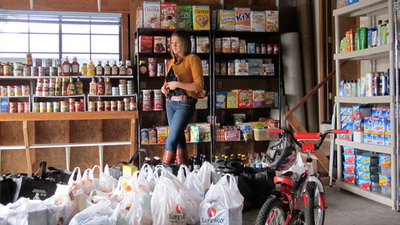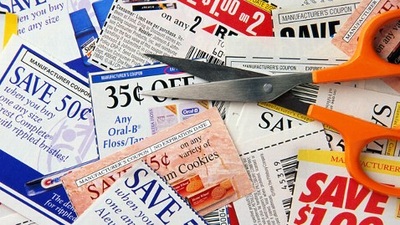|
Now that it's vacation season, we all think back to our fiduciary responsibilities and the pros/cons of our purchases. For example whether eating BeanieWeenies every day and risking a heart attack is worth a week vacation in St. Thomas? Obviously we all love a good deal, where with the onset of smart-phones, consumers DO know best.
But how about taking a step-back and embracing the good old days of paper coupon cutting, where there is no better deal than dropping $35 on an Entertainment Coupon book, now with a smart phone app! Time and time again it's been proven you have to spend money to make money, this is certainly one of those instances. While some may call this an investment, others ask why? Do I want to lug this heavy ass book around with me? How much do I value a free ice cream? How long till I completely forget about this thing? Will I actually save any money? With further investigation I found some coupons relevant to Brooklyn: Popeyes buy-one-get-one-free 11 Pieces of mixed chicken, get another 11 free. Gosh, how much fried chicken can I eat? If I'm still hungry, the ultimate saver is Boston Market $1 off meal or free dessert. First why bother and where is there a Boston Market in NYC? Other opportunities available to me were, Aeropostale $10 off purchase of $50 or more. Is this store making a come back, I heard there was one in the Fulton Mall. Either way Entertainment LLC is still around. It was founded in 1962 by former veteran and lawyer Hugh and his wife Shelia Potiker. The business began as a small coupon booklet compiled around the kitchen table, however later it became so successful that they were able to retire in La Jolla CA to dedicate their lives to philanthropy. Obvious what all poor people do. After a few mergers and sales, Entertainment was running relatively smoothly until March 2013 when declaring bankruptcy and laying off over 600 employee, with over 200 being Troy Michigan residents alone. The bankruptcy was a result of shareholding financing at the ownership level, which ended in Lowell Potiker (Hugh and Sheila's son) coming to the rescue and purchasing the company for $17.5 million. Over the course of the past 50 years, Entertainment has developed a network of 70,000 local, regional, and national retailers while also helping fundraise over $2.5 billion. The real question is what exactly were the shareholders doing? It is apparent the Potiker family has done alright, well enough enough they were able to buy back their company and future inheritance. Today's society is smarter, questioning how these Entertainment books still exist. This company preys and benefits off penny-pinchers looking to save, businesses unable to get out there, and fundraisers unaware of Kickstarter and Girls Scout cookies. It would be interesting to know how much money customers actually save versus waste, and or how much unneeded stuff customers get suckered into buying? One thing is for certain, I as well as most people certainly don't need 22 pieces of Popeye's fried chicken, no my how much my mouth says yes, my heart/arteries say no.
1 Comment
|
LAJ
100 Objects of Popular and Material Culture is an blog exploring the manifestations of human consumption and commodity-ization. The purpose of this experiment is to explore material and popular culture in contemporary society by using objects and concepts to prompt wider questions and reflections. So by emulating The British Museum's and Neil MacGregor's format of A History of the World in 100 Objects I plan to satirically analyze and reinterpreted 100 material culture objects over the course of 2014. Material Culture is the study of our culture's consumption of stuff; namely the manifestation of culture through material productions where people's perceptions of objects is socially and culturally dependent. With this, objects reflect conscious and unconscious beliefs on the the individuals who fabricated, purchased, or used them, and by extension the society where they live. So examining materiality, cultural truths and societal assumptions may be discovered. As anthropologist Arjun Appaduai states "in any society the individual is often caught between the cultural structure of commodity-ization and his own personal attempts to bring a value and order to the universe of things." Objects and commodities make up a much larger symbolic system consisting of want and need, socio-economic status, fashion, etc. Often times form follows function whether the commodity, market, and or consumer forever evolve around one-another. Philosopher Pierre Bourdieu's theories of capital flow full circle; where regardless if you are a minimalist or a hoarder the world is made up of things and everyone will leave their footprint on the earth. So by humorously analyzing marketed objects and concepts, hopefully this blog will provide further incite into ideas of over-consumption, a disposable society, consumerism vs. anti-consumers, planned obsolescence vs. sustainability, as well as the greater good of mankind and future generations. Archives
March 2015
Categories |








 RSS Feed
RSS Feed